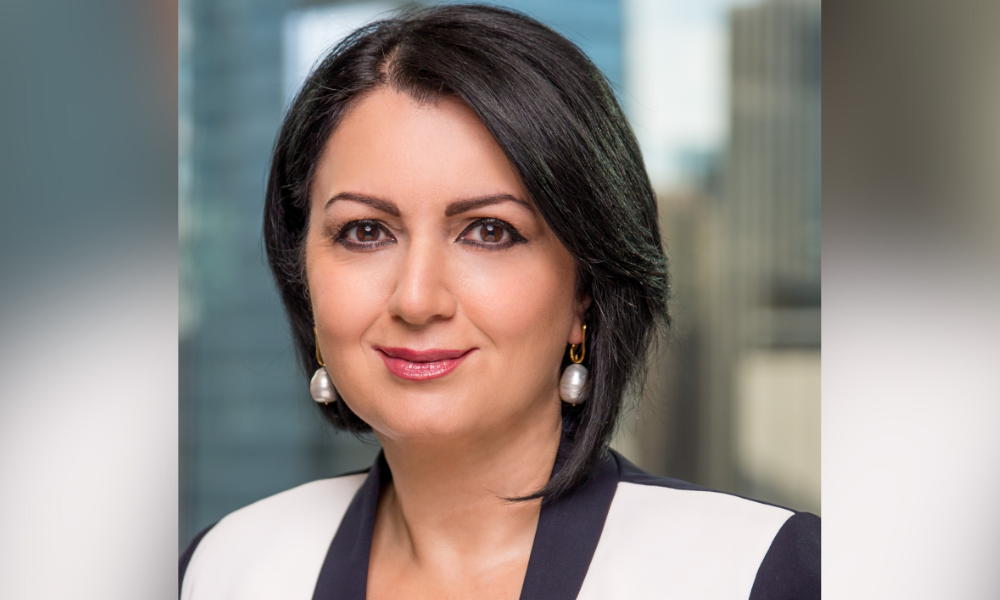Tina Tehranchian explains why this career suited her so well, offers suggestions that might bring more women into financial advice

Tina Tehranchian became an advisor by accident, or so she says. The senior wealth advisor with Assante Capital Management Ltd. started her career in 1991 as a recent immigrant to Canada with a master’s in communications. Tehranchian wanted to work in television production, but she had just landed in an economy in recession with a two-and-a-half-year-old son. Flexibility was crucial, and she found it in financial advice.
33 years later, Tehranchian says that financial advice has served her needs as an entrepreneur, a mother, and a woman. The flexibility afforded by her work allowed her to care for her son while she grew her business. Tehranchian says that success in advice demands hard work and resilience and that the advantages and flexibility that come with this work should be attracting more women to this career path. She offered some experiences and perspectives on how this industry can bring more women into advice.
“I never think of myself in terms of gender or ethnicity, I was brought up that way. I’m lucky that I had parents who always told us that you can do anything that boys can do. I grew up thinking there was nothing in this world I could not do, so my gender was never an issue,” Tehranchian says. “But the first time I noticed there were not many women in the room was at a conference I attended in the early 90s. There were maybe a handful of women attending. There are more women in the room now, but still only about 20 per cent of financial advisors are women. I would have expected that over 33 years we would have improved more.”
While Tehranchian says one of the causes of this gender imbalance is individual choices, she suggests a few concrete steps that the industry can take to attract more women to financial advice. The first is to market itself on that flexibility, which was so crucial in Tehranchian’s early career. The entrepreneurial and self-directed nature of advisory work can be a hugely attractive feature for many women who want to balance their careers with family aspirations.
Advisory firms can go a step further, Tehranchian says, by offering more comprehensive childcare solutions for their female advisors. Childcare can show young women that their firm cares about them and their wider goals in life, while giving them the time and energy required to invest in their careers.
“If we want a new generation of women to come and thrive in this industry, we have to support them by providing that infrastructure of childcare, to help them be able to survive in this career. Because it's not an easy career,” Tehranchian says. “Whether you're a man or a woman, I don't care what your gender is, this is not an easy career. You have to be tough, you have to be resilient, you have to be able to put up with major fluctuations in your income, which is not for everyone.”
By encouraging more women to become advisors, Tehranchian thinks that the industry can better deliver its services to all Canadians. She says she has differentiated herself as a female advisor and while her practice is roughly 50/50 in terms of gender, she believes that many of her female clients have been more open with her because she is a woman.
Improving the place of women in advice, she says, is part of a wider push towards greater diversity. Canada is an incredibly diverse place and serving people of various backgrounds takes empathy and understanding. Building teams and practices that reflect that diversity can mean communities and individuals feel deeper connections and receive better service.
Tehranchian says her many identities: woman, immigrant, and entrepreneur, have helped her connect more deeply with clients. Many of her clients have similar backgrounds. She attracts a number of entrepreneurs to her practice and can share their experiences, challenges, and perspectives. So too with female clients and immigrant clients.
“I think the more you understand where your clients are coming from, the more you can help them, the more you understand their issues,” Tehranchian says. “Diversity of backgrounds, no matter where you're coming from, can become an advantage as an advisor, because people who've been in similar situations can benefit from your experiences. There are tens of thousands of people, who have been in your situation no matter what your situation is.”



